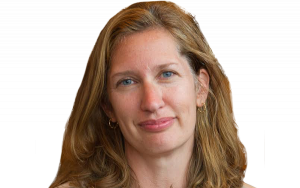Robin Lake: Online Charters Redefine School. Now, States Must Redefine Oversight to Accommodate Them & Protect Students

Once again, virtual charter schools are coming under heavy scrutiny. Last week, the Center for American Progress published a report that called for banning for-profit online charter school operators. Soon thereafter, two Democratic U.S. senators called for a Government Accountability Office investigation of virtual charter schools.
While meaningful federal action might be unlikely under the current administration, congressional pressure might help force action at the state and local levels. States that have tried to crack down on large virtual charter schools, or hold them accountable for academic and financial issues, have faced massive pushback from online school operators.
Still, state-level policymakers, as well as districts and charter school authorizers, don’t need to wait for federal action to improve oversight of virtual charter schools.
In 2015, the Center on Reinventing Public Education, Mathematica Policy Research, and Stanford University’s Center for Research on Education Outcomes together released a series of reports that found dismal academic results in virtual charter schools that warranted immediate action and identified concrete steps regulators and policymakers can take.
Since we published our report, the need for better oversight has only become clearer. The high-profile shutdown of Ohio’s Electronic Classroom of Tomorrow left thousands of families scrambling and underscored the risks poorly regulated online schools can pose for the public education system as a whole.
However, neither outright bans on full-time online schools or the profit-seeking companies that run them, nor the light-touch regulatory approaches advocated by virtual school operators themselves, will address the complexities of overseeing virtual institutions that educate hundreds of thousands of students. Many students need an online option, but they deserve an assurance that those that are funded with public dollars are high-quality.
It’s also important not to lose sight of the big picture. Our approach to regulating public education must become more flexible and more nimble. That does not necessarily mean more lax. Regardless of how they choose to deal with full-time online charter schools, policymakers need to look for innovative ways to set a high bar for academic performance, ensure proper protections for public funds, and guard against the systemic risks exposed by the Ohio school’s abrupt shutdown. It is possible to do this while promoting innovation and maximizing diverse learning opportunities for students.
Our report revealed some approaches that can improve oversight, including:
● Experiment with performance-based funding, or fund online schools based on courses their students actually complete, rather than raw enrollment numbers. (Completion-based funding systems may also be less prone to some of the manipulation that critics of online charter schools have flagged.)
● Create well-defined frameworks for evaluating online charter schools, as Colorado has done, or delineate specific requirements for these schools, as Maine has.
● Increase transparency by requiring online charter providers to publicly report enrollment, engagement, and student achievement data that they already collect.
Advocates have offered additional suggestions that deserve attention. For example, the National Association of Charter School Authorizers, the National Alliance for Public Charter Schools, and 50CAN have recommended that online schools, which are often open to any students inside their states, be overseen by authorizers, such as statewide charter boards, that truly have the capacity to monitor them effectively.
It may also be worth finding creative ways to ensure that only students who have the parental support or self-motivation needed to excel in an online setting are encouraged or allowed to enroll full-time. This is something online learning companies themselves say they’re working on. Real solutions may confound virtual school operators’ incentives to enroll more students (and thus earn more revenue), but they also pose philosophical problems for those who believe in parental choice.
Above all, regulations of full-time online schools are ripe for experimentation at the state and local levels. To maximize the value of those experiments, states should also invest in rigorous research evaluations to assess the impact of regulatory changes.
Online schools challenge traditional oversight in a number of ways. Their students tend to be mobile and often switch schools as their circumstances change. The lack of in-person contact makes it harder for teachers to gauge student engagement. In practice, students might combine online learning — even if nominally full-time — with enrichment programs that cater to homeschoolers, dual enrollment at colleges and universities, or other learning experiences mixed and matched by their families.
School systems have traditionally been regulated in the assumption that hundreds of students will spend their days together in the same brick-and-mortar buildings. Virtual charter schools confound that assumption, but so will course choice programs, education savings accounts, hybrid learning arrangements in which online providers expand the course offerings of brick-and-mortar schools, and other innovative programs yet to emerge.
In other words, full-time online schools are just one example of a growing array of learning providers that stretch the existing definition of a school. To protect the public interest and ensure that all students engage in meaningful learning, our approach to regulating public education must find new ways to stretch, too.
Robin Lake is director of the Center on Reinventing Public Education as well as affiliate faculty at the School of Interdisciplinary Arts and Sciences at the University of Washington Bothell.
Get stories like these delivered straight to your inbox. Sign up for The 74 Newsletter

;)
